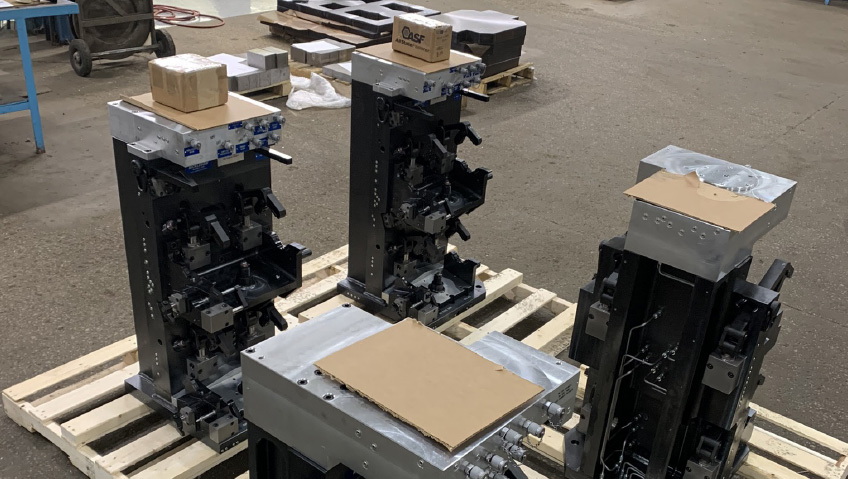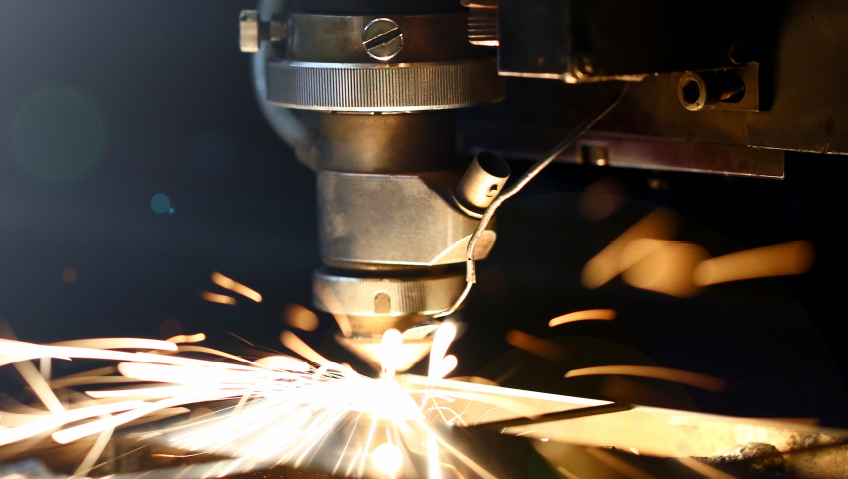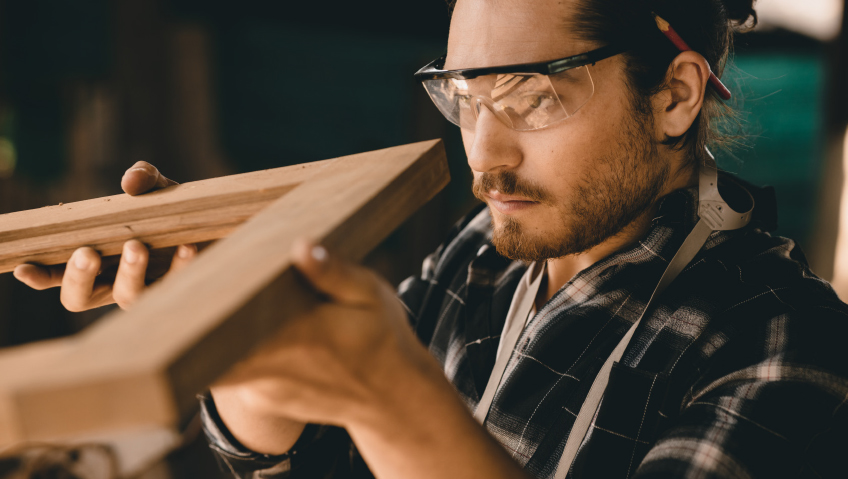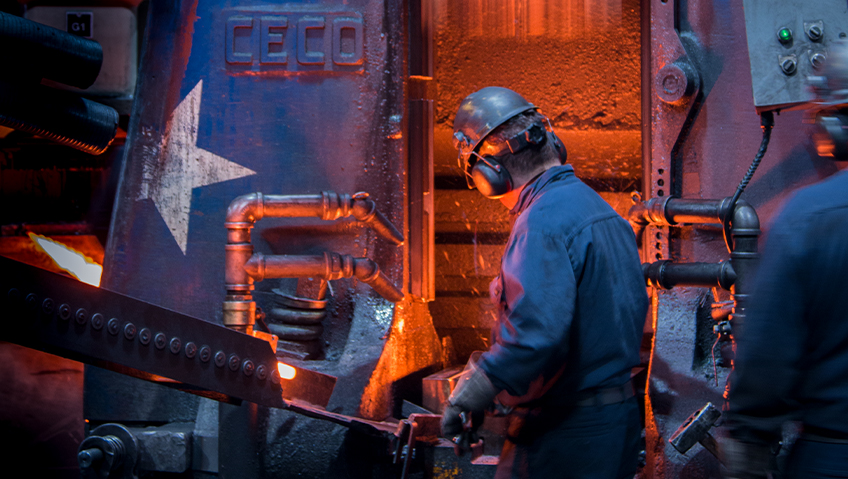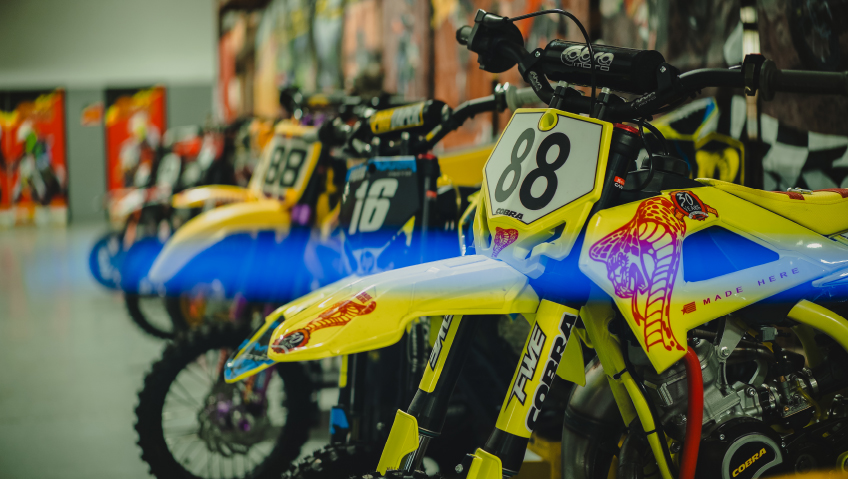90 years ago, cars were topping out at a whopping 65 miles per hour; on average they cost less than a thousand dollars and had something like 95 horses under the hood if you were lucky.
Cars have come a long way since then and just keep on transforming. Through it all, Nickleson Machine & Tool has supplied multiple countries’ automotive industries with custom-designed work-holding fixture solutions.
Operating out of Windsor, Ontario on the border between Canada and the U.S., the business, founded in 1932, has grown from a machine tool shop manufacturing customized machines to a highly-sought after company that’s produced more than 500,000 projects for customers. The company is a longstanding member of the Canadian Tooling and Machining Association (CTMA), and in 2022, celebrated an impressive 90 productive years in the industry.
Growing with the giants
As the automakers grew from simply ‘big’ to the giant corporations they are now, Nickleson worked directly with them to produce machining equipment for automotive parts, including cylinder heads, engine blocks, and many more cast, forged, stamped, and extruded automotive parts.
Back then, as cars rolled off the assembly line, each element of the car and its engine did its own thing, with independently moving parts coming together to get the car from A to B. Work as it did—usually—it was a far cry from the smoothly humming, efficient systems cars have become, with forward collision warning, 360-degree camera systems, and fast USB charging, among numerous other features.
“CNC machines became so cost-effective and versatile that retooling a CNC machine with new fixtures rather than replacing the entire custom machine would result in substantial capital equipment cost savings,” says Daniel Desjardins, Sales Manager for Nickleson. “Rather than replacing the whole machine, you would just replace the fixture. A custom machine may cost you a million dollars; a new fixture may only cost you $20,000. Which would you rather replace every four years?”
For Nickleson, the CNC machine’s advancement meant adjusting its core business. The team pivoted from designing and building large, highly customized machines to designing and building CNC work-holding fixtures.
These industry changes and demands led to expansion and specialization. Nickleson previously developed custom machines that covered hundreds of square feet, at times nearly filling their entire assembly bay. These impressive machines became part of the company’s legacy, which evolved into holding fixtures; instead of constructing the entire custom machine for specific machining operations, they now build an aspect of it that can be replaced with new programs.
Open to opportunities
Desjardins says this cemented the company as an important contributor to the automotive industry and opened doors to other opportunities. “The bulk of our business is our work in holding fixtures,” he says. “While most of this work is for the automotive sector, we also support the aerospace sector in Canada. Now we’re even sending tooling to places such as Argentina, Mexico, and Thailand.”
It may not be widely known, but there are many aerospace manufacturers in Ontario that support the biggest commercial aviation names. Nickleson, for many years, has been involved in building machining fixtures for these manufacturers as well. To handle the business growth, the company is planning upgrades which include renovating an 8,000-square-foot bay on the east wing of its facility and replacing five older pieces of equipment with state-of-the-art CNC milling machines.
“We removed our vertical lathes, manual boring mills, and our jig bore machines,” says Desjardins. “This cleared the way for more modern machines, and we’ve been poring over all the new options available. This will allow us to do more advanced projects and offer better pricing because the new equipment can complete tasks more accurately as well as much quicker.” The combination of specialty work, speed, and cost-effectiveness has allowed Nickleson to gain even more traction in the market and build on its strong reputation.
Desjardins has seen how the company has grown and evolved to meet new challenges. He grew up with the Nicklesons when his family moved to LaSalle, a neighbouring city of Windsor. He went to school with the sons of the company’s current president, completing an apprenticeship program to start his career. He also worked for many years in the trade as a CNC programmer and machinist before moving to the sales arm of the industry.
Nickleson Machine & Tool has always been a family business, being passed down through five generations and never sold. A big part of the Nickleson family’s success has been maintaining close-knit working relationships with their employees, mainly promoting from within and offering rewarding, interesting work. There’s a lot of job satisfaction that comes with satisfied clients and delivering on complex jobs.
State-of-the-art solutions
In addition to creating a positive and supportive internal environment, the team also provides state-of-the-art solutions for its customers. For instance, Nickleson was asked to help a company scale up its operations from two machines to a full-blown cell, which included eight new CNC milling machines and custom fixtures to suit.
“They recognized the need to improve their work-holding capabilities for the new CNC machines that they would be installing. So they contacted us to discuss how to improve their existing process,” says Desjardins. “We ultimately came up with a complete redesign that allowed the holding fixtures to be rigid and easily repeatable, which is extremely important for CNC machining fixtures. We also designed the tool to remain modular, including the ability to retrofit the fixture for new part iterations and any other modifications that might be required later in their machining program.”
Building in flexibility, in many ways, is a must when it comes to improving and building on existing fixtures. And this is becoming a real necessity in the automotive industry as electric vehicles begin to take hold of the market. Rather than purchasing new fixtures for minor part changes, Nickleson left the option open for the tool to be modified without being in a situation where the customer would have to cut apart the fixture to make changes. This allows for rapid changes if the customer has an evolving work piece or prototype.
“With this program, a large part of its success comes from the dialogue, when we engage with our customer through meetings and video calls. We also do site visits, where we try to learn everything possible about an application so that we can add a lot of value.”
Through these discussions, the team learns where the most critical features are located and they gain insight into the process and the workpiece, beyond simply knowing the general dimensions and tolerancing provided in the blueprint. Collaborating with customers in this way delivers an end product that everyone knows will be functionally sound as soon as It’s installed.
Adapting to EVs
Looking ahead, Nickleson Machine & Tool continues to adapt to the changing manufacturing landscape as electric vehicles become more common and the supporting infrastructure falls into place. The team has a seasoned principal engineer in-house and is known for producing world-class engineering concepts with innovative strategies for difficult-to-hold workpieces, says Desjardins.
“This has translated into contracts for new fixtures used to hold body structure components used in the vehicle’s electrical systems,” he explains. “It comes from our engineering capabilities. We’re known for doing the difficult jobs other people may not want to get involved with, including breaking into some EV programs where there’s a lot less work for an EV than there would be for a standard internal combustion-engine vehicle.”
Ultimately, diversifying is key to staying ahead of the curve. As the large automakers ramp up electric vehicle production, they’re looking to tooling companies like Nickleson to provide solutions for new vehicle technologies. The critical work Nickleson contributes to making EVs can help make them more affordable for everyone through competitive pricing for tooling, which drives down the overall cost of the car.
“We recently pulled off a very difficult fixture program for the EV industry,” says Desjardins. “Right now, we have a real opportunity to demonstrate how we can support the automotive parts suppliers with these new ventures. We’re not turning away from our core business, but we are focusing on what’s coming up and how we can stand out.”

